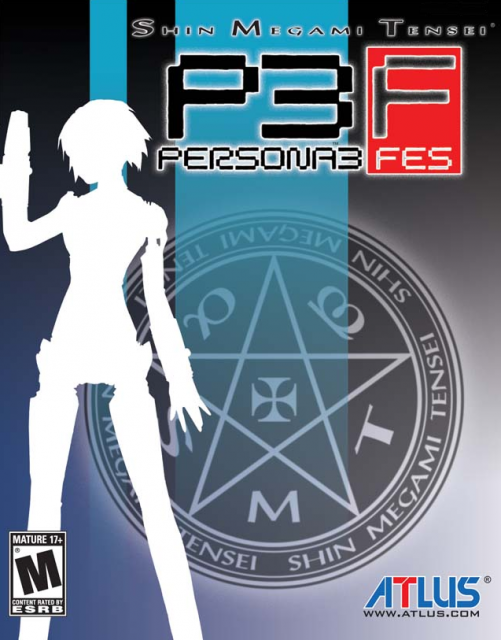Persona 3's core gameplay is based on a rather clever hybrid of conventional JRPG mechanics and teenage life simulation. The general idea is that by building human relationships in the life sim your character becomes stronger and acquires bonuses which have a direct impact on the combat-oriented JRPG section of the game. Since the main character is a high school kid, the majority of the people available to socialize with are students from his school, but you can also befriend other colorful characters such as a cigar-smoking drunkard monk, a pair of elderly book store owners, a fiendish TV show host and a young girl troubled by family-related problems. Every NPC friend comes with a unique story arc, which unfolds as the relationship develops and eventually reaches some kind of climactic situation after which no further socializing is needed.
The problem with the relationship component is that - like many other things in Persona 3 - it's fairly simplistic and thus soon becomes predictable and repetitive. Although you can screw things up a little by choosing the wrong dialogue option during a story scene, there is generally very little real interactivity involved and all the NPC interactions have more or less the exact same basic structure, which tends to become tedious to sit through after a while.
The combat component almost entirely takes place while exploring a randomly generated dungeon known as Tartarus. The objective here is to explore as many floors as possible while defeating enemies, acquiring loot and finding new so-called Persona creatures which you can equip or merge to create new Personas. The demon fusion system is going to be instantly familiar to anyone who's played a Megaten game before. The tried and tested formula works rather well here and the constant search for newer and better Personas is a reasonably entertaining and addictive activity, to which an additional layer of depth is added by its intimate connection to the relationship component of the game.
While making your way through Tartarus you come across miniboss creatures at set intervals and eventually reach a dead end where a passage to the next part of Tartarus will only appear after the current in-game month is over (and after a larger boss creature has been disposed of). As for combat itself, it relies heavily on exploiting each enemy's specific weakness or weaknesses by using your Persona's various spells and other magical abilities. If these weaknesses aren't properly taken advantage of, even a low-level enemy could prove surprisingly difficult to defeat, but since the game features a free "Identify Enemy" command from the very beginning it's often fairly obvious which spells you are supposed to use against which enemies.
The problem with the very time-consuming Tartarus part of Persona 3 is twofold; it's too easy and it's way too repetitive. As previously mentioned, the important thing to keep in mind during the combat sequences is to exploit the enemy's weakness to one or more spell categories or weapon types...and that's basically all there is too it. Apart from not having an adequate collection of Personas - something which is easily remedied by a bit more grinding - there really isn't much of a real challenge to speak of in this game until the very last few hours. And although exploring levels for the first time and encountering new enemies is often fun, you're more often than not forced to repeat the same levels over and over again during the course of a month because progress through the dungeon is controlled by plot developments rather than by the player's own efforts. A fair amount of grinding is often necessary, but the needlessly restrictive nature of the game means that you time and again find yourself stuck with the same old enemies on the same old levels even though your party has long since become strong enough to face much more powerful enemies.
Since the environments in both the dungeon and the city stay pretty much the same, the overall combination of Tartarus grinding and life sim quickly becomes very tedious as well. In more traditional RPGs you typically get to explore fresh new vistas as you fight your way through the game world, but that variety is almost completely lacking in Persona 3 due to its excessively cyclical structure.
On top of this, the story doesn't really do a very good job of keeping you interested in the game. The characters - being high school kids and all - are predictably shallow and stereotypical; there is the lively and popular girl, the slacker dude, the academic-minded senior student etc. The slow-moving plot pretty much follow the standard "let's save the world" formula (albeit in a somewhat atypical setting), and although the overall art design, the various environments and the music are all basically very good, the inherent repetitiveness of the gameplay ensures that it all gets old rather fast; especially considering that this is a fairly lengthy game that will probably take most gamers between 60-100 hours to complete.
In summary, although Persona 3 is undeniably a great-looking, stylish product and a well-intentioned attempt by Atlus to break with a stale JRPG tradition in order to deliver a fresh new experience, the flawed end result unfortunalety leaves a lot to be desired.



3 Comments